SLC22W1 | Measurements needed to trace the first item of children's clothing
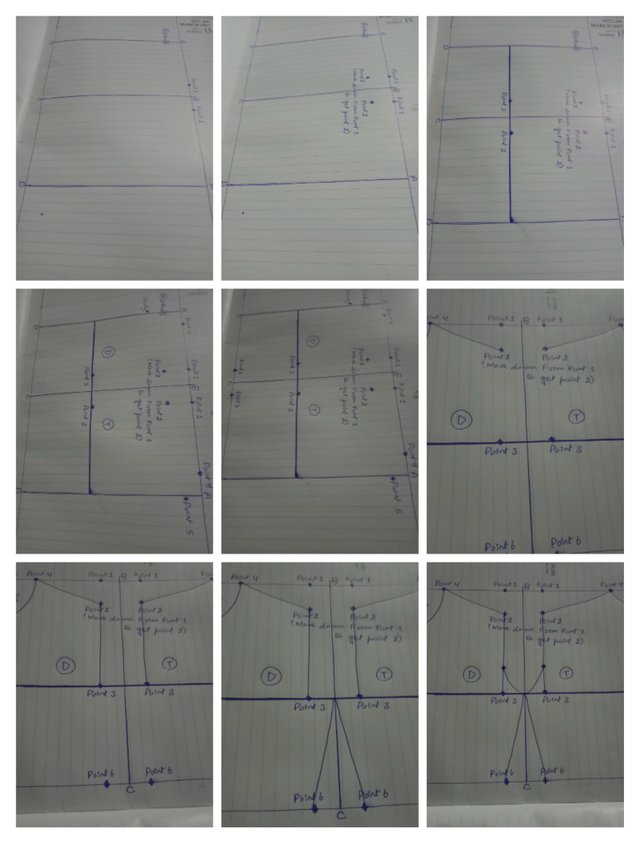
Here I am working with industrial sizes for smallest size or I am making an industrial size of a toddler by taking the following measurements that are below;
| Measurements |
|---|
• First I am taking chest contour equal to 56 cm which is an average circumference of chest of a baby or of a toddler.
• Secondly I am taking circumference of waist of toddler which I am considering equal to 52 cm.
| Calculations of measurements |
|---|
• I am taking length of rectangle by dividing waste of circumference with 4 and adding 1 cm here as;
Waist circumference/4+1
So;
52/4+1= 14 cm
• I am taking width of rectangle as chest contour divided by 4 + 1 cm which can be written as;
Chest contour/4+1
So;
56/4-1cm=15 cm
• I am taking shoulder drop around 2 cm for toddler.
• I am taking arm hole depth at around 8 to 10 cm for toddler.
| Pattern pieces |
|---|
According to calculations I have made about now pattern pieces can be created in the following way;
| Front piece |
|---|
- Length: 14 cm
- Width: 15 cm
- Shoulder slope: 2 cm
- Armhole depth: 8-10 cm
- Chest line: 6-7 cm which is half of chest contour from which 1 cm will be minus)
| Back piece |
|---|
- Length: 14 cm
- Width: 15 cm
- Shoulder slope: 2 cm
- Armhole depth: 8-10 cm
- Chest line: 6-7 cm which is half of chest contour from which 1 cm will be minus)
| Seam allowances |
|---|
Now I have added 1-1.5 cm seam allowance around edges of pattern pieces.
Now by following all these steps let's have a look that how I am creating or tracing basic pattern for children clothing by using these industrial size measurements.....
Clothing pattern for children can be traced by following these steps;
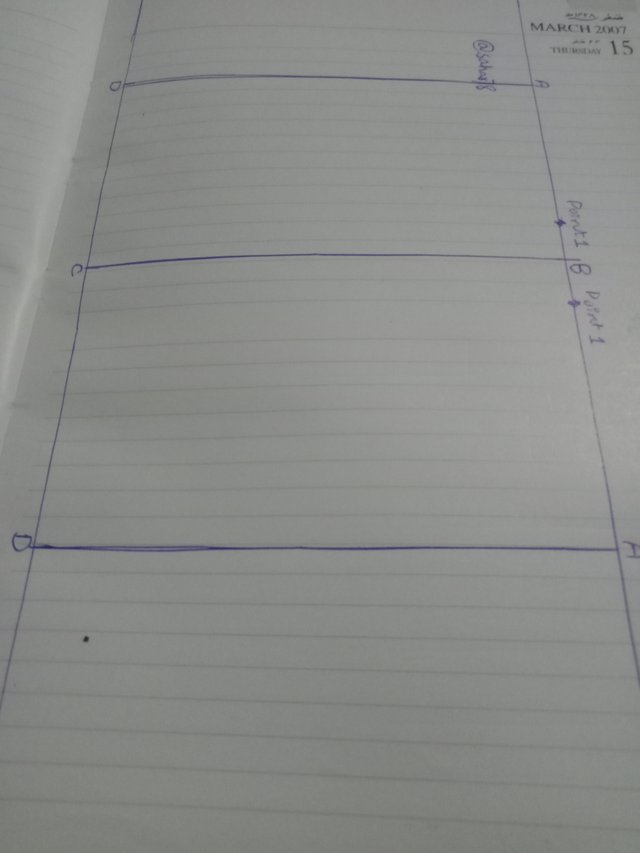
• First of all you have to create a rectangle with length equal to 1/4 of waist circumference and adding one into it which I calculated as 14 cm
• I duplicate this rectangle for creating front and back pieces both.
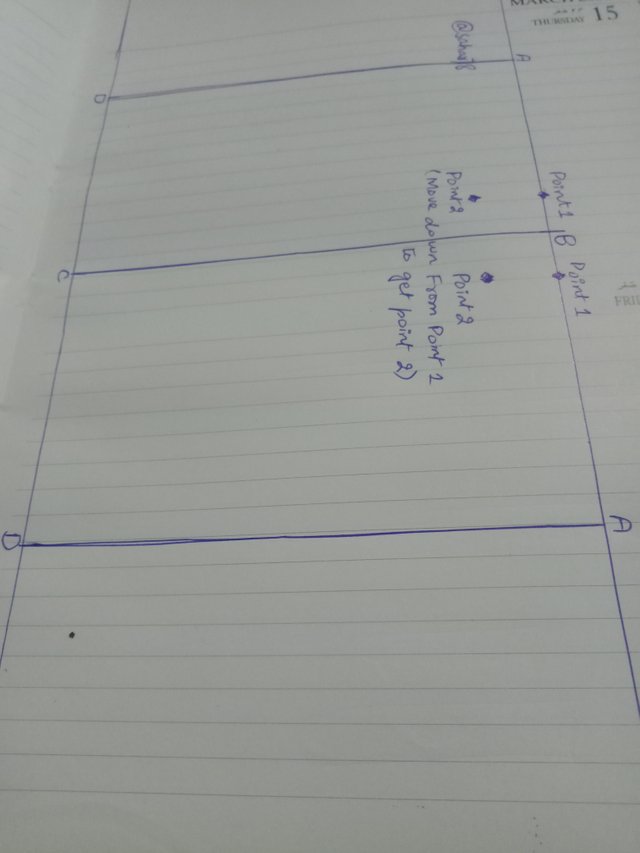
• Now I have measured half of back width starting from point a 2 point b at both sides of rectangle which is front and back side.
• After that I have measured shoulder drop starting from point 1 towards inside of box.
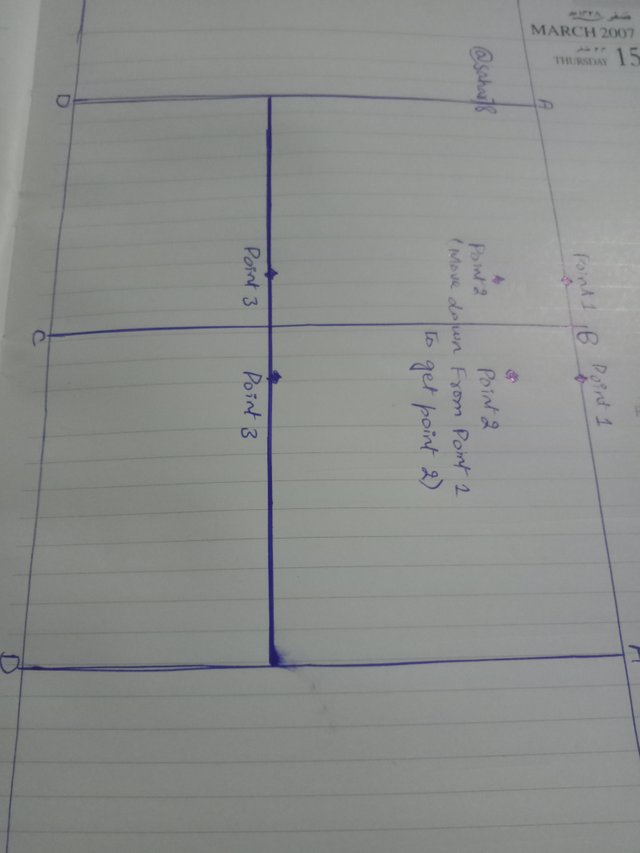
• In next step I have measured half of back width and then I minus 1cm from point towards inner box side.
• I measured 6th part of back width starting from point A to b at both sides which are front and back.
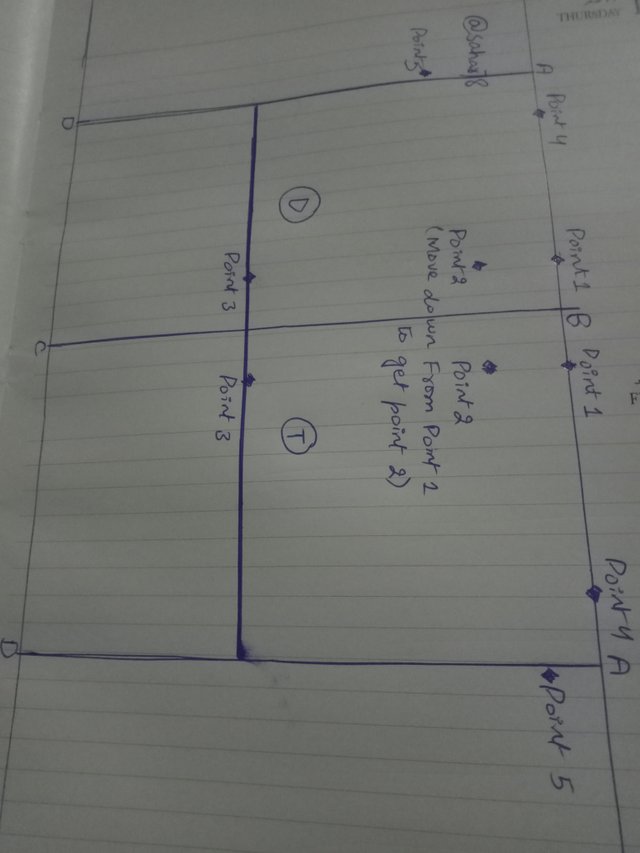
• In this step I am measuring around 1.5 cm down from point a to D for back piece and I am measuring 1/6th part of width of back.
• After that I measured 4th part of waist circumference and added 1 to 1.5 cm from point number D to point number C.
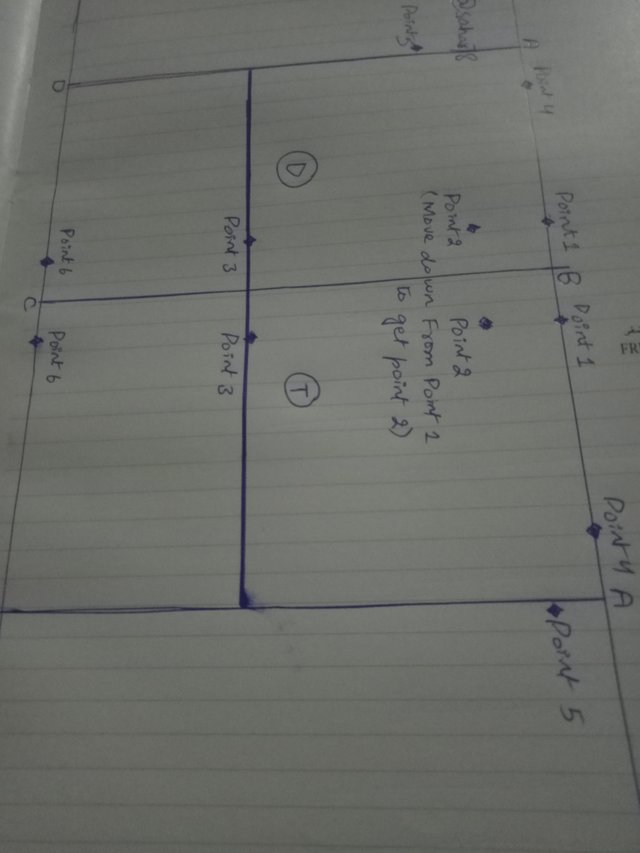
• Top right and left corners of rectangle are named as A.
• Bottom right and left corners of rectangle are named as D.
• Top mid line and bottom mid line are labelled as B and C respectively.
• Around point B the points I measured are labelled as point 1 at both front and back pattern as well just down to point 1,i labelled shoulder drop as point 2 at both front and back pattern.
• At middle line of rectangle I labelled point 3 at both pattrens and at bottom line of rectangle around mid line there is point 6 labelled at both pattrens
• Point 5 are labelled in both front and back pieces at line A to D which is vertical line.
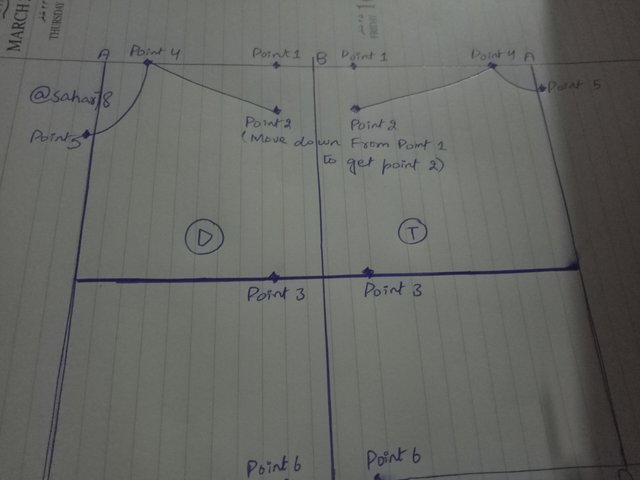
• I have connected now point number 4 with 5 point at both front and back pieces with a deep and slight curve.
• After that I have connected point 4 with point 2 with straight line.
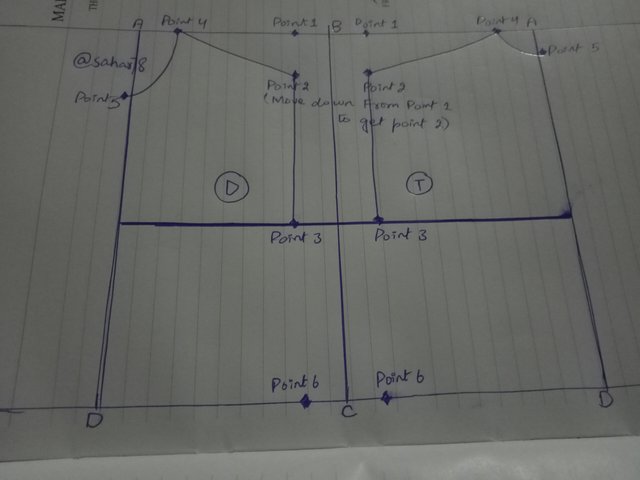
• After that I have connected point 2 with point 3 which is located at chest line with vertical lines at both patterns.
• At bottom there are point 6 in both patterns which are joined with mid point of line located in mid of rectangle.
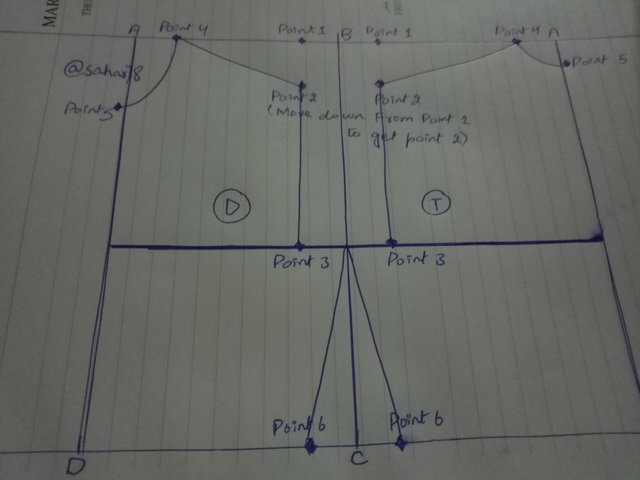
• A space will be measured from point 3 to chest line and then transfer it to in between line 2 and 3.
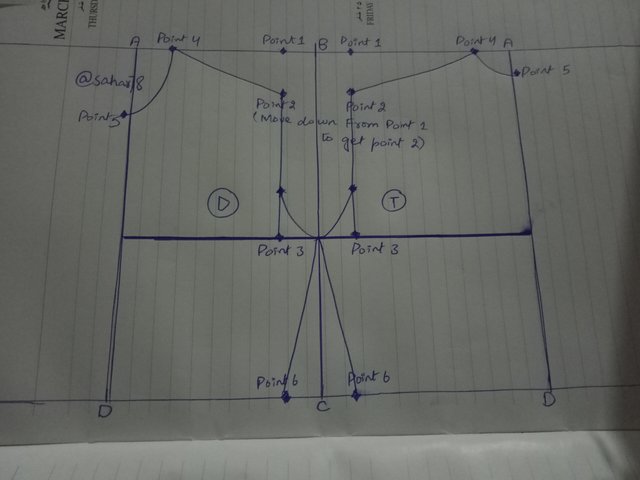
• This is final look after connecting all points and tracing each and everything properly.....
Special invitation to;
@kouba01
@mahadislam
@lirvic
@suboohi
@tipu curate
;) Holisss...
--
This is a manual curation from the @tipU Curation Project.
Upvoted 👌 (Mana: 4/7) Get profit votes with @tipU :)